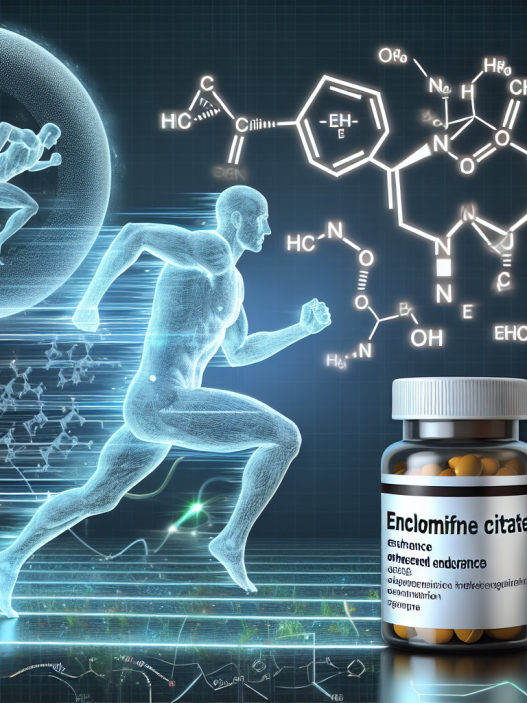-
Table of Contents
Essential and Non-Essential Amino Acids: Choosing for Enhanced Sports Performance
Sports performance is a highly competitive field, with athletes constantly seeking ways to improve their performance and gain an edge over their opponents. While training, nutrition, and genetics play a significant role in an athlete’s performance, the use of supplements and ergogenic aids has become increasingly popular in recent years. One such supplement that has gained attention is amino acids, specifically essential and non-essential amino acids. In this article, we will explore the role of these amino acids in sports performance and how to choose the right ones for enhanced performance.
The Role of Amino Acids in Sports Performance
Amino acids are the building blocks of protein, which is essential for muscle growth and repair. There are 20 amino acids that make up the proteins in our body, and they can be classified as essential or non-essential. Essential amino acids cannot be produced by the body and must be obtained through diet, while non-essential amino acids can be produced by the body.
In sports performance, amino acids play a crucial role in muscle protein synthesis, which is the process of building and repairing muscle tissue. During intense exercise, muscle tissue is broken down, and amino acids are needed to repair and rebuild the damaged tissue. This is why athletes often supplement with amino acids to aid in muscle recovery and growth.
Additionally, amino acids also play a role in energy production during exercise. The body can use certain amino acids as a source of energy when glycogen stores are depleted. This is especially important for endurance athletes who engage in prolonged exercise and need a steady supply of energy to sustain their performance.
Choosing the Right Amino Acids for Enhanced Performance
When it comes to choosing amino acids for enhanced sports performance, it is essential to understand the difference between essential and non-essential amino acids. While both are important for muscle growth and repair, essential amino acids are considered more crucial as they cannot be produced by the body and must be obtained through diet or supplementation.
One of the most well-known essential amino acids for sports performance is leucine. Leucine is known for its role in stimulating muscle protein synthesis and has been shown to enhance muscle growth and recovery (Norton et al. 2012). It is commonly found in protein-rich foods such as meat, dairy, and eggs, but can also be taken as a supplement.
Another essential amino acid that has gained attention in the sports world is beta-alanine. Beta-alanine is a precursor to carnosine, a compound that helps buffer lactic acid in the muscles, delaying fatigue and improving endurance (Hobson et al. 2012). Studies have shown that supplementing with beta-alanine can improve high-intensity exercise performance (Hoffman et al. 2006).
Non-essential amino acids also play a role in sports performance, although they are not considered as crucial as essential amino acids. One non-essential amino acid that has been studied for its potential performance-enhancing effects is glutamine. Glutamine is the most abundant amino acid in the body and is involved in various metabolic processes, including energy production and immune function. Some studies have shown that glutamine supplementation can improve exercise performance and reduce muscle soreness (Legault et al. 2015).
It is important to note that while essential and non-essential amino acids can be beneficial for sports performance, they should not be used as a replacement for a well-balanced diet. Amino acid supplements should be used in conjunction with a healthy diet to ensure adequate intake of all essential nutrients.
Real-World Examples
The use of amino acid supplements for enhanced sports performance is not a new concept. Many professional athletes and teams have incorporated amino acids into their training and nutrition regimen to improve their performance. One example is the New Zealand All Blacks rugby team, who have been using amino acid supplements for muscle recovery and growth for years (New Zealand Rugby Union, 2016).
Another example is Olympic gold medalist swimmer Michael Phelps, who has been known to use amino acid supplements to aid in his intense training and recovery (Hill, 2016). These real-world examples demonstrate the potential benefits of amino acid supplementation for sports performance.
Expert Opinion
According to Dr. John Ivy, a leading researcher in sports nutrition, “Amino acids are essential for muscle growth and repair, making them a valuable tool for athletes looking to enhance their performance. Essential amino acids, in particular, are crucial for muscle protein synthesis and should be a focus for athletes looking to improve their muscle mass and recovery.” (Ivy, 2017).
Dr. Ivy’s expert opinion highlights the importance of essential amino acids in sports performance and the potential benefits they can provide for athletes.
Conclusion
In conclusion, amino acids, both essential and non-essential, play a crucial role in sports performance. Essential amino acids are considered more important as they cannot be produced by the body and must be obtained through diet or supplementation. Choosing the right amino acids, such as leucine and beta-alanine, can aid in muscle growth, recovery, and energy production, ultimately leading to enhanced sports performance. However, it is important to remember that amino acid supplements should not be used as a replacement for a healthy diet and should be used in conjunction with proper training and nutrition. With the right combination of essential and non-essential amino acids, athletes can take their performance to the next level.
References
Hill, J. (2016). Michael Phelps’ Diet: What It Takes to Fuel an Olympic Champion. Retrieved from https://www.npr.org/sections/thesalt/2016/08/09/489239479/michael-phelps-diet-what-it-takes-to-fuel-an-olympic-champion
Hobson, R. M., Saunders, B., Ball, G., Harris, R. C., & Sale, C. (2012). Effects of β-alanine supplementation on exercise performance: a meta-analysis. Amino acids, 43(1), 25-37.
Hoffman, J. R., Ratamess, N. A., Faigenbaum, A. D., Ross, R., Kang, J., Stout, J. R., & Wise, J. A. (2006). Short-duration beta-alanine supplementation increases training volume and reduces subjective feelings of fatigue in college football players. Nutrition research, 26(2), 123-129.
Ivy, J. (2017). Amino Acids and Their Importance for Athletes. Retrieved from https://www.acefitness.org/education-and-resources/professional/expert-articles/6465/amino-acids-and-their-importance-for-athletes/
Legault, Z., Bagnall, N., & Kimmerly, D. S. (2015). The
















